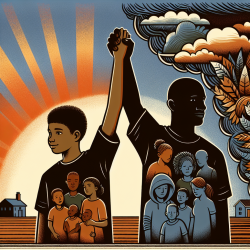As a practitioner dedicated to improving health outcomes for children, it's crucial to stay informed about effective interventions. A recent systematic review titled Interventions for Indigenous Peoples making health decisions: a systematic review provides valuable insights into shared decision-making (SDM) strategies for Indigenous communities. This blog will summarize key findings from the review and suggest ways to integrate these strategies into your practice.
Key Findings from the Systematic Review
The review analyzed nine studies focused on SDM interventions for Indigenous populations. The studies were categorized into two clusters: Indigenous-oriented and Western-oriented. Here are some key takeaways:
- Context Matters: The place where SDM occurs significantly impacts decision-making opportunities. Indigenous-oriented studies often aimed to integrate SDM within existing healthcare systems, while Western-oriented studies preferred community settings.
- Provider Characteristics: Little is known about the specific characteristics of healthcare providers who engage in SDM processes. However, relational competencies such as active listening and cultural sensitivity are crucial.
- Community as a Partner: Community values and knowledge play a significant role in supporting SDM. Engaging community members as partners can enhance the effectiveness of interventions.
- Trust-Building: Trust is a foundational element in SDM processes. Building trust between healthcare providers and Indigenous communities is essential for successful interventions.
Practical Applications for Practitioners
To integrate these findings into your practice, consider the following strategies:
- Engage Community Partners: Collaborate with local Indigenous communities to understand their values and needs. This will help tailor interventions to be more culturally relevant and effective.
- Focus on Trust-Building: Invest time in building trust with Indigenous families. This can involve consistent communication, respecting cultural practices, and involving community leaders in decision-making processes.
- Train Providers: Ensure that healthcare providers receive training in cultural sensitivity and relational competencies. This will equip them to better support Indigenous families in making informed health decisions.
- Utilize Decision Aids: Implement decision aids that are culturally adapted for Indigenous populations. These tools can facilitate better communication and understanding between providers and families.
Encouraging Further Research
While the review provides valuable insights, it also highlights gaps in the current literature. Further research is needed to explore the characteristics of healthcare providers involved in SDM and to develop more interventions that support Indigenous self-determination.
To read the original research paper, please follow this link: Interventions for Indigenous Peoples making health decisions: a systematic review










